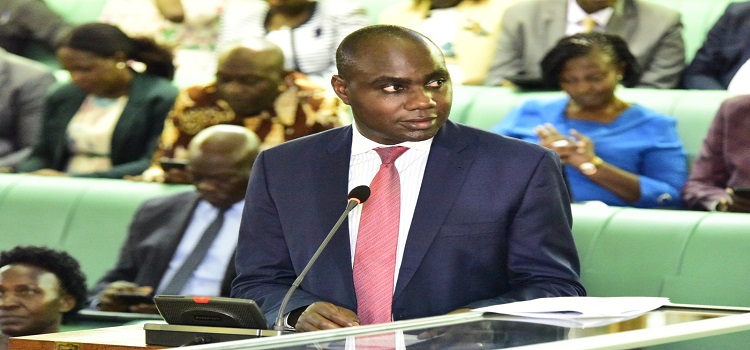The Ministry of Finance has tabled four tax bills before Parliament, introducing key reforms aimed at broadening Uganda’s tax base and improving compliance. Among the proposed changes is the use of the National Identification Number (NIN) as a Tax Identification Number (TIN) for individuals and an extension of Bujagali Electricity Limited’s tax exemption until 2032.
The bills, presented by Hon. Henry Musasizi, Minister of State for Finance (General Duties), onThursday include:
Tax Procedures Code (Amendment) Bill, 2025
Income Tax Bill, 2025
Hides and Skins (Export Duty) (Amendment) Bill, 2025
Value Added Tax (Amendment) Bill, 2025
To enhance tax administration and compliance, the government is proposing that all individuals use their National Identification Number (NIN) as their official Tax Identification Number (TIN) instead of applying separately through the Uganda Revenue Authority (URA).
“For tax purposes, the following shall be used as tax identification numbers: (a) a national identification number issued by the National Identification Registration Authority (NIRA) for individuals; (b) a registration number issued by the Uganda Registration Services Bureau (URSB) for non-individuals; and (c) a TIN issued by a foreign tax authority where Uganda has a tax treaty or agreement,” Minister Musasizi stated.
The proposal is expected to streamline tax registration processes, improve compliance, and facilitate more effective tax enforcement, particularly among individuals and businesses operating in the informal sector.
Waiver on Tax Interest and Penalties
In a bid to encourage voluntary tax compliance, the government is also proposing a waiver on outstanding interest and penalties, provided that taxpayers settle their principal tax liabilities.
“Any interest and penalty outstanding as at 30th June 2024 shall be waived where the taxpayer pays the principal tax by 30th June 2026. If a taxpayer pays part of the principal tax by that deadline, the waiver of interest and penalties shall apply on a pro-rata basis,” Musasizi explained.
This measure is intended to ease the financial burden on businesses and individuals while incentivizing compliance with tax obligations.
Stricter Regulations for Tax-Exempt Entities
The proposed amendments also seek to tighten tax exemption rules, ensuring that beneficiaries adhere strictly to the requirements outlined in tax laws.
“A taxpayer exempted from tax under any tax law shall at all times maintain the requirements necessary to qualify for the exemption. Failure to do so shall result in the taxpayer being liable to pay taxes for the period of non-compliance,” the Minister noted.
The provision aims to enhance accountability and prevent abuse of tax exemptions, ensuring that entities granted tax relief comply fully with regulatory conditions.
Bujagali Tax Exemption Extended to 2032
One of the most notable proposals in the new bills is the extension of the tax exemption for Bujagali Electricity Limited until 2032. The government argues that maintaining the exemption will help sustain affordable electricity tariffs.
However, previous extensions have been met with public debate, with some stakeholders questioning the continued financial incentives for Bujagali despite its already long-standing tax holiday.
Parliament to Review Proposals
The tax amendments will undergo further scrutiny by Parliament, with lawmakers expected to assess their implications on revenue collection, business operations, and overall economic growth.
As Uganda seeks to strengthen its domestic revenue mobilization strategy, these proposed reforms are set to play a crucial role in shaping the country’s fiscal policy in the coming years.





